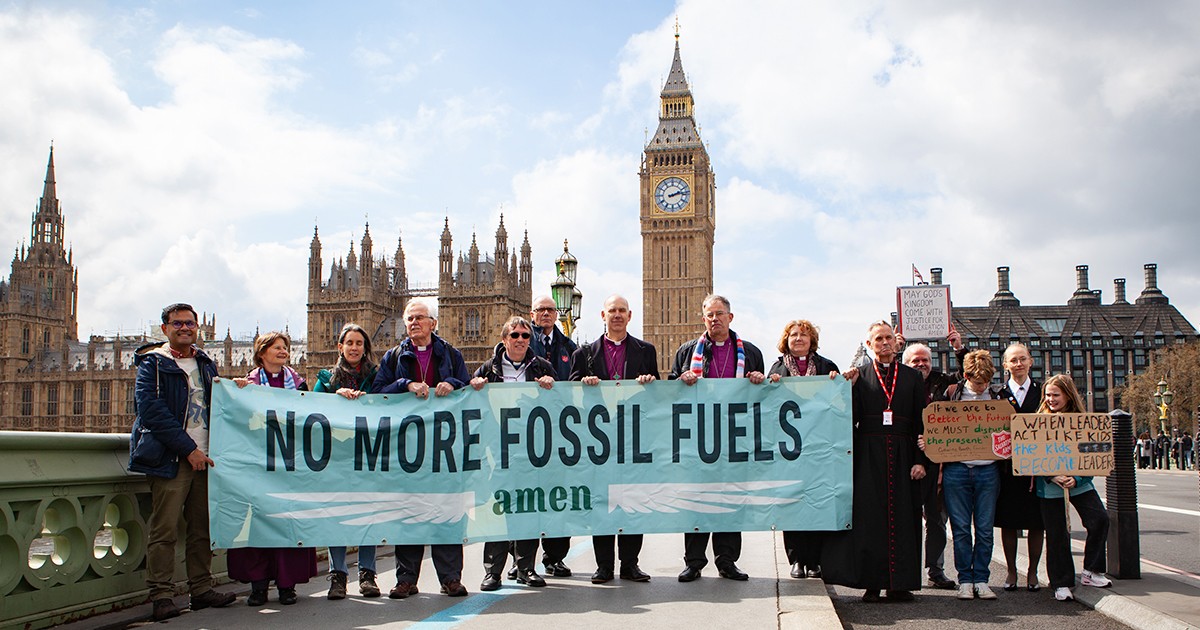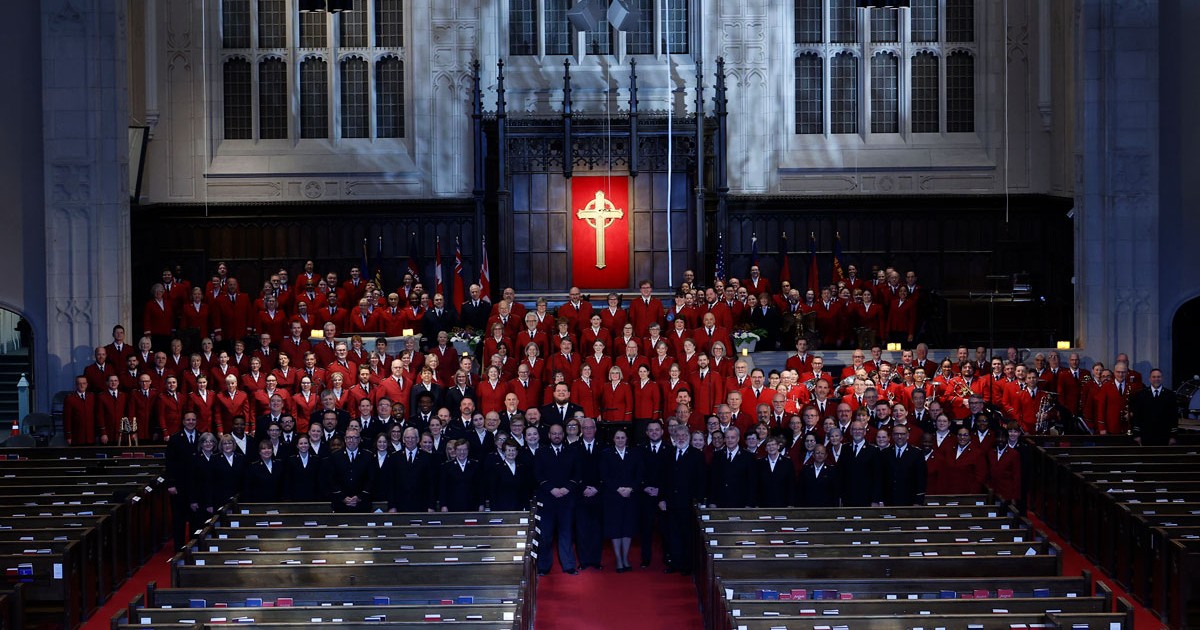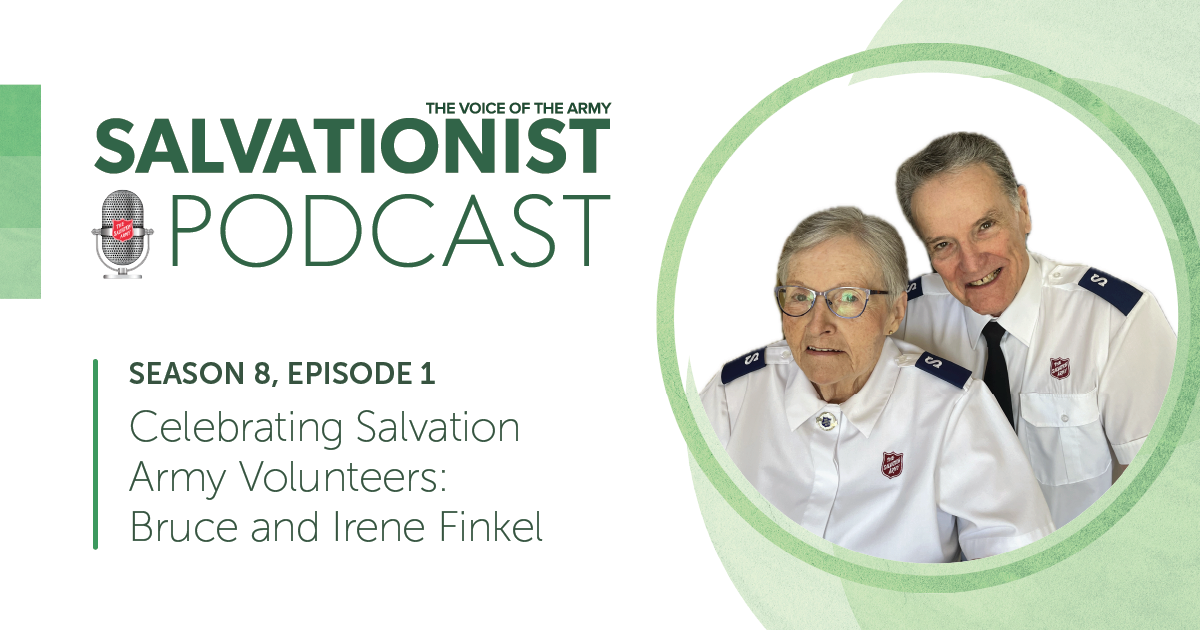Many of my favourite leisure activities have something in common: fire. I like sitting around a campfire with family and friends as we share stories or roast marshmallows over the orange flames. I look forward to spending time in a forest and boiling a kettle over burning kindling. And I love reading a book in front of a blazing fireplace as the heat permeates everything around me.
These activities have taught me that fire is dependent on certain elements: fuel, heat and oxygen. When they are combined, combustion takes place due to a chemical chain reaction. However, the moment that any of those elements are removed, the chain reaction is disrupted, and the fire is suppressed. Conversely, the more fuel, heat and oxygen present, the larger the fire. This is what allows the flame of a single matchstick to transform into a raging inferno.
Fire is a powerful force that can forever alter whatever it encounters.
In the Christian context, we speak of another form of fire. Commissioner Thomas H. Howard, the second Chief of the Staff of The Salvation Army, once wrote, “In our hearts an altar is built, and the divine fire is kindled.” Some understand this holy fire as the work of the Holy Spirit that grants us the ability to serve God in remarkable ways. This fire prompts us to live lives marked by sacrificial service and complete devotion, with a different perspective of life from that of the non-believer.
It could be argued that it was this same spiritual fire burning deep within the earliest members of The Salvation Army that prompted them to live out their mission in exceptional ways. Open-air meetings filled with testimony and song, protests against social vices and attempts to care for the poor were not always appreciated by spectators. But threats of violence and the hurling of insults—and the occasional rotten vegetable—could not dissuade those early Salvationists from sharing the gospel and carrying out their innovative work.
I, too, can recall gatherings of Salvationists that could aptly be described as “on fire.” I can recall the rise and fall of church floorboards as the sea of Salvation Army uniforms jumped and swayed in praise around me. I remember well the preparation and excitement that accompanied the visit of a high-ranking Salvation Army leader. I loved the congress and commissioning events of my childhood when large sessions of cadets marched in step while the band’s Bognor Regis reverberated throughout the rafters. As we celebrated, the spiritual fire burned brightly.
However, Commissioner Howard also warned that even the “God-lit fire needs tending.” Like any flame left unattended or deprived of fuel, eventually only dying embers will remain where once danced blazing flames.
While I refrain from suggesting that only dying embers remain in The Salvation Army, it is hard not to sense a cooling temperature in many of our worship spaces. It also seems that many of our membership are more hesitant to sacrifice personal pleasure for the betterment of others. Empty sanctuaries, depleted resources, leadership vacancies and a genuine lack of excitement about who we are and what we do have become all too common. Whole generations are missing from many churches and a cynicism has developed, causing some to view our once-celebrated ceremonies as nothing more than pomp and self-serving extravagancy.
The flame has indeed grown dim.
Maybe our fire needs some serious tending. Maybe we need to add some fuel to the fire and place ourselves on the altar once again.
I believe that God is always ready to ignite and fan the flames within us. But the fire needs fuel. The fire needs the offering of our whole selves in body, soul and spirit. The fire needs people who are fully aware of their reliance upon God; those willing to engage in spiritual disciplines; servants willing to return regularly to the altar of sacrifice and service; faithful followers willing to invest in the fires that burn within the people around them; and those willing to proclaim, “on thine altar here I lay, all there is of me” (SASB 569).
Yes, like physical fire, the divine fire within is a powerful force that can forever alter whatever it encounters. And what a trail could be blazed if all in the Army offered our whole selves and boldly petitioned God to “Send the fire, send the fire, send the fire!” (SASB 326).
Major Sheldon Bungay is the corps officer at St. John’s Temple, N.L.
Photo: ArtistGNDphotography/E+ via Getty Images
This story is from:










Comment
On Thursday, September 22, 2022, very concerned said:
On Thursday, August 4, 2022, Cassie kean said:
On Friday, July 29, 2022, Daniel Roode said:
One of my favourite quotes of Commissioner Edward Read is so apt to follow up this article: "So we do well to share the Psalmist's cry, "Wilt Thou not revive us again?" It is not nostalgia, but spiritual poverty, that makes us long for the power manifested of old. The Salvation Army, born in the fire, ought to admit it cannot live in the smoke. Brokenly, even desperately, let God's people seek that refreshing and restoring and revitalizing which only He can give!" May it be so.
On Thursday, July 28, 2022, Also concerned said:
I agree with "Concerned" in wishing the solutions suggested were the answer. In my heart I know it is far more complex than this. Divisive theology in The Salvation Army needs to be dealt with and Army-wide repentance for "sin in the camp" needs to be sought before we are able to move ahead in the freedom of the Spirit and the blessing of God. The fire both purifies and burns. This is hard, but necessary spiritual work for us all, but especially leadership.
Thank you for this reminder to continually seek the Holy Spirit for our wider movement.
On Thursday, July 28, 2022, Concerned said:
Very well said. The flame has indeed grown dim. The causes are many. I only wish the solutions to the problem contemplated by the Captain would be the answer to it.
Leave a Comment